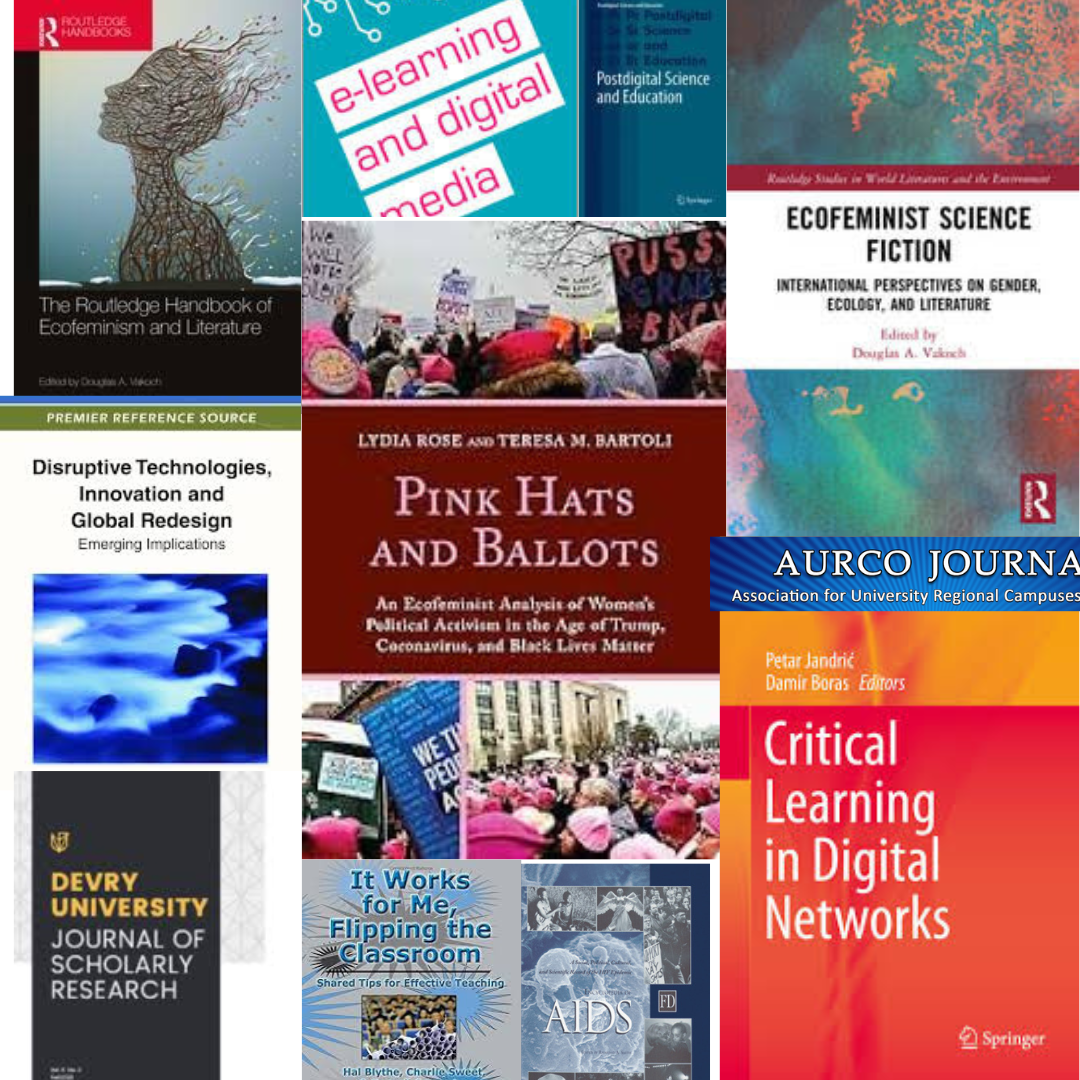About Dr. Lydia Rose’s Research Contributions
Dr. Lydia Rose's research contributions and publications span a wide array of interdisciplinary topics, including ecofeminism, gender studies, social justice, and educational pedagogy. Her work provides critical insights into the intersections of gender, environment, and political activism, particularly in contemporary socio-political contexts.
In her book "Pink Hats and Ballots: An Ecofeminist Analysis of Women’s Political Activism in the Age of Trump, Coronavirus, and Black Lives Matter," co-authored with Teresa M. Bartoli, Dr. Rose explores the dynamics of women’s political activism during significant socio-political upheavals. The book offers an ecofeminist lens through which to analyze the roles that women have played in movements such as the Women’s March, the response to the COVID-19 pandemic, and the Black Lives Matter movement. This work is a significant contribution to understanding how gender and environmental concerns intersect with political activism in times of crisis.
Dr. Rose’s scholarly articles further extend her ecofeminist critique into various cultural and media representations. For example, in her chapter "Hegemonic Masculinity" in The Routledge Handbook of Ecofeminism and Literature, she examines how literature reflects and perpetuates dominant masculine ideologies, particularly in the context of environmental degradation and gender oppression. This work underscores the importance of challenging hegemonic structures that contribute to both environmental harm and gender inequality.
In collaboration with Timothy Hibsman, Dr. Rose authored "Embracing Badass Women in History: Social (Re)Constructions of Cutthroat Female Pirates," published in Portmanteau: An Interdisciplinary Journal of Gender and Diversity. This article challenges traditional historical narratives by highlighting the often-overlooked roles of powerful women, such as female pirates, in history. Through a critical analysis, the authors demonstrate how these figures subvert conventional gender norms and offer alternative models of female empowerment.
Another notable publication by Dr. Rose, co-authored with Teresa Bartoli, is "Hegemonic Masculinity and Tropes of Domination: An Ecofeminist Analysis of James Cameron’s 2009 Film, 'Avatar.'" Published in Ecofeminist Science Fiction: International Perspectives on Gender, Ecology, and Literature, this article critically examines the film's portrayal of masculinity and its implications for understanding gendered power dynamics in environmental contexts. Dr. Rose’s analysis reveals how popular media can both reflect and reinforce dominant ideologies, making her work essential for scholars interested in media studies, gender, and the environment.
Dr. Rose also explores the concept of agnotology, or the study of culturally induced ignorance, in her article "Agnotology and the Epistemology of Ignorance: A Framework for the Propagation of Ignorance as the Consequence of Technology in a Balkanized Media Ecosystem." This publication, featured in Postdigital Science and Education, delves into how technology and media contribute to the spread of ignorance, particularly in fragmented information environments. Her work is pivotal in understanding the contemporary challenges posed by misinformation and the role of media in shaping public knowledge.
In the realm of educational pedagogy, Dr. Rose’s article "Brain-based Learning for Accelerated Online Educational Programs as a Foundation for Resistance of Predatory Practices on the 'Time-Poor'" offers critical insights into how brain-based learning strategies can be employed to resist exploitative practices in online education. Published in Knowledge Cultures, this research is particularly relevant in the context of the growing reliance on digital learning platforms, especially in light of the COVID-19 pandemic.
Dr. Rose has also contributed to discussions on the influence of artificial intelligence (AI) in educational settings. In collaboration with Timothy Hibsman, she co-authored "A.I. Influences on Practical Pretending, Role Playing, and Escapism through Simulations in the Classroom," published in the DeVry Journal of Scholarly Research. This article explores the implications of AI-driven simulations in educational environments, offering a critical perspective on how technology can both enhance and hinder learning experiences.
Her commitment to public sociology is evident in her community-based participatory research, which engages sociology students and public groups in dialogues on social inequality and cultural diversity. By integrating community service learning with public sociology, Dr. Rose creates opportunities for students to participate in research activities that address critical social issues affecting both local and global communities.
Overall, Dr. Lydia Rose’s research is characterized by its interdisciplinary approach and its focus on critical social issues, making significant contributions to the fields of ecofeminism, gender studies, media studies, and educational pedagogy. Her work not only advances academic discourse but also actively engages with broader societal challenges, making it both academically rigorous and socially impactful.

